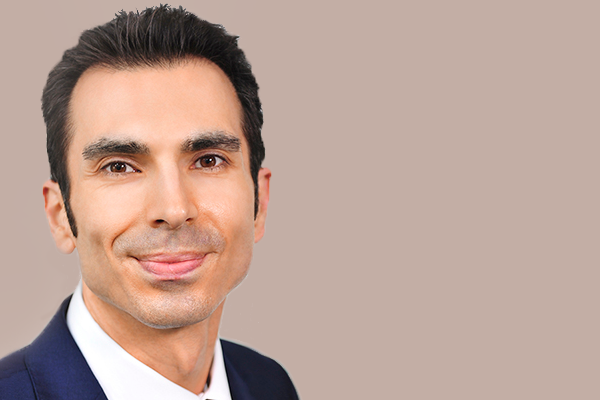The Institute for Public Administration Australia (IPAA) has released its National Strategic Plan 2021-2025. Developed by IPAA’s National Council in consultation with IPAA’s eight Divisions, and designed by IPAA SA’s very own Marketing and Membership Coordinator, Kathryn Oosthuizen. The plan provides a framework to re-focus IPAA’s vision of:
This strategic plan provides a foundation to celebrate, reach out and work with others on excellence in public administration and public policy across Australia. It outlines four key objectives with relevant actions associated to them to ensure this plan is delivered effectively. These objectives include:
These objectives are underpinned by nine actions that the Chief Executive Officers and Executive Directors of the eight Divisions, and the National Executive Director have been tasked to implement. A key to the success of this plan is developing strategic partnerships which help support the signature events and new initiatives which will be implemented.
Monitoring, evaluation and reporting mechanisms have also been included in the strategy to measure ongoing successes and allow opportunity for refinement as required.
For more information about the plan, contact the IPAA National Office at info@ipaa.org.au. See the original IPAA National News article here.
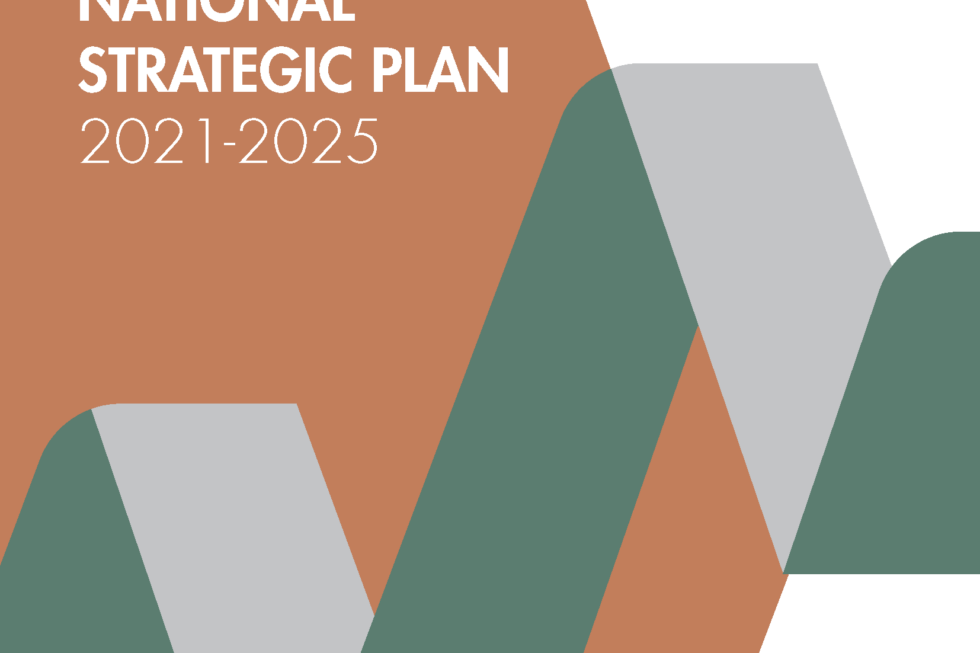
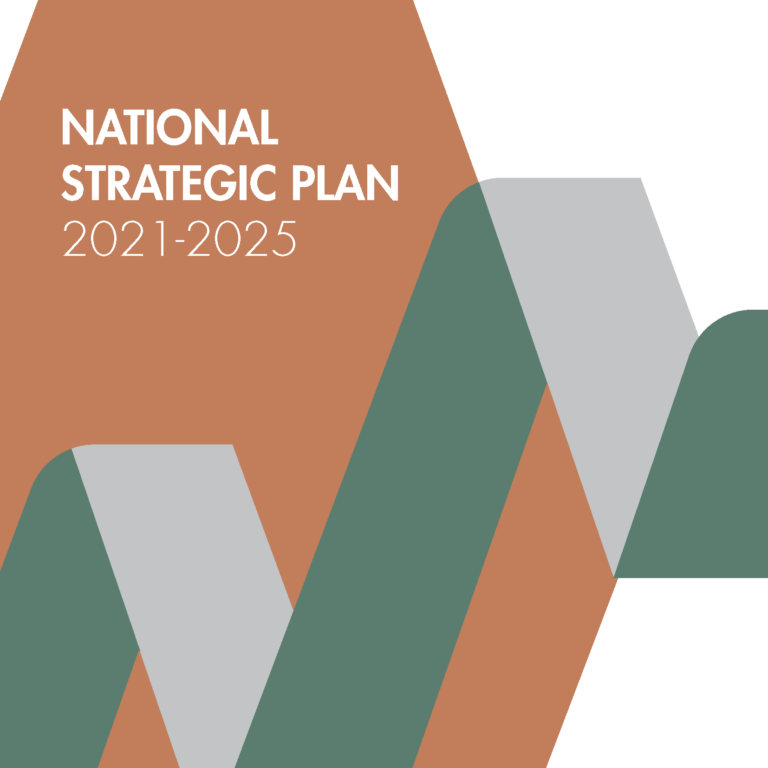
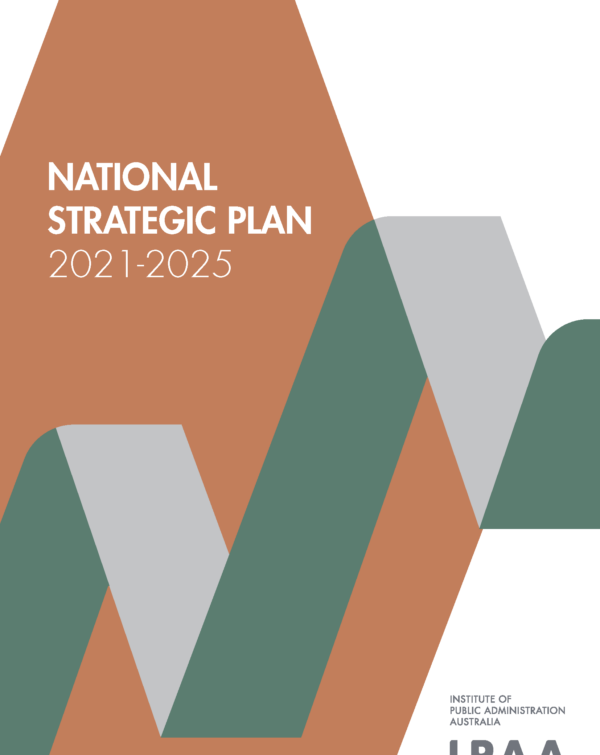
At the 2021 IPAA National Conference held in Brisbane this week, Dr Gordon De Brouwer PSM FIPAA announced the 2021 National Fellows to be recognised by the institute. This year not one, but two, South Australian Members were recognised with the award of Fellowship. Our Divisional Council is pleased to congratulate Caroline Mealor and Ruth Ambler as worthy recipients of the highest accolade of IPAA and welcome them into an esteemed cohort of Fellows.
Fellowship of the institute recognises the achievements and commitment of members of the institute to the best practice of public administration, as well their contributions to the goals on the institute.

Caroline Mealor FIPAA is the current Chief Executive of the Attorney General’s Department (AGD) and is also the Company Secretary of our Divisional Council. Caroline is highly committed to the reform of the criminal justice system and has led significant reform in this area. In addition, she has led South Australia’s involvement in the National Redress Scheme and coordinated the State’s response to both the Royal Commission into Aged Care Quality and Safety and the Royal Commission into Violence, Abuse, Neglect and Exploitation of People with Disability. Caroline firmly believes in the importance of skilled leaders at all levels and has encouraged a strong focus on leadership development across her department through a number of initiatives designed to upskill and grow the next generation of leaders in the AGD.

Ruth Ambler FIPAA is the Executive Director, Cabinet Office of the Department of the Premier and Cabinet and a long time patron and member of IPAA SA. Ruth has led a varied and impactful career in the South Australian public sector, spanning departments including Human Services, Community Investment and Support, Aboriginal Affairs and Reconciliation and more. In her current role in Cabinet Office, Ruth supported a newly elected Government who had not been in power for 16 years. During this time, Ruth implemented measures to support a Cabinet-led Government that positioned DPC to coordinate and lead whole of government reform and strategic initiatives. Ruth also led the implementation of the Boarding Call database which made it easier for South Australians to join one of more than 200 government boards that work to make a difference in our state. In addition to this, Ruth has also has significant positive impact on Reconciliation action within SA, taking a leading role in the Reconciliation Action Plan 2020-23.
Congratulations once again to both Caroline and Ruth on this most-deserved recognition for their efforts and commitment to the betterment of public service in our state. To view all National Fellows, please visit here. For more information on the National Fellowship award and IPAA National, please visit here.




Membership starts from only $99 per year and is open to anyone working within or in association with the public sector.
Become a MemberLooking for a podcast to get inspired, learn something new or to confirm that you are going in the right direction? IPAA have some public sector specific podcasts which feature some insightful conversations with local public service professionals.
#1 – IPAA ACT | Work With Purpose Podcast Series
This podcast series explores the important role of the Australian Public Service and their roles in supporting the Government’s response and recovery from the COVID-19 pandemic. Focusing on priorities for the future and key learnings /takeaways from leaders in the sector.
Available on the IPAA ACT website.
#2 – IPAA ACT | Integrity Series
The Integrity Series is a four-part podcast series produced in partnership between IPAA ACT and the Australian Public Service Commission (APSC). It explores the meaning of integrity and the importance of harnessing integrity as an APS craft to build a high performing and trusted public service.
Available on the IPAA ACT website.
#3 – IPAA VIC | Public Sector Perspectives
IPAA Victoria presents Public Sector Perspectives, a podcast featuring conversation with incredible people highlighting the interesting work in government and across the Victorian Public Sector.
Available on the IPAA ACT website.
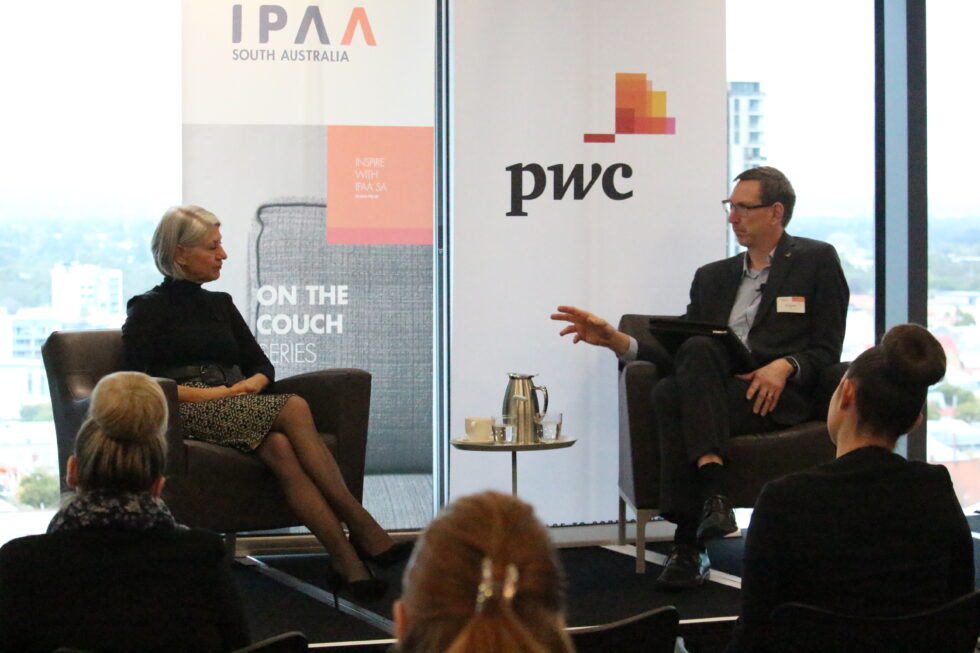
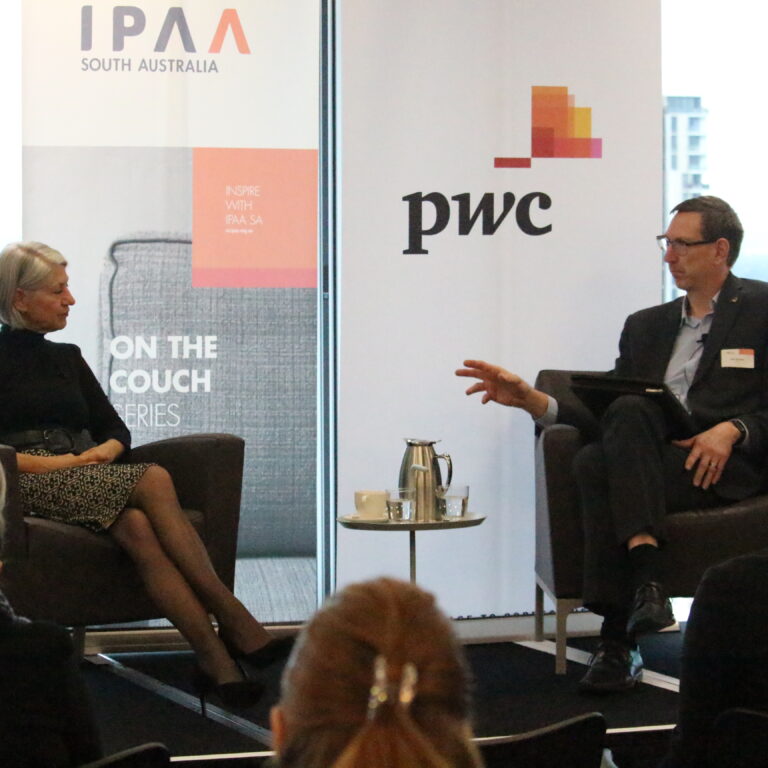
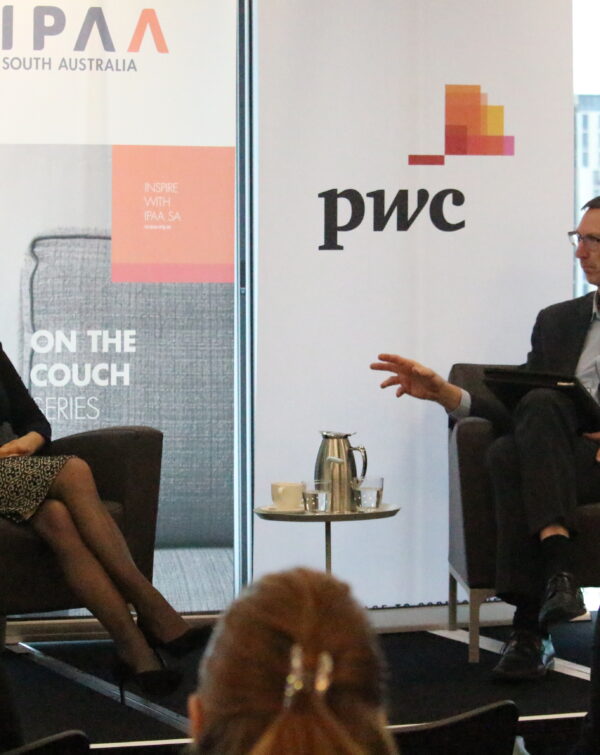
The PwC Skilled Service Hub is Australia’s national onshore delivery centre based in Adelaide, it supports clients across Australia to solve their most important problems. Having already hired over 100 new staff since July, the Skilled Service Hub team is continuing to grow and they now have more job opportunities available. The Skilled Service Hub is already in operation across Cybersecurity and Cloud capabilities to help drive economic growth for the South Australian and national economy across a wide range of industries.
PwC is currently hiring 150+ roles through the PwC Australia Skilled Service Hub in the following teams:
Whether you are an intern / recent graduate, Associate, Senior Associate, Manager or Senior Manager there are a range of jobs currently available to grow and develop in the sector. If you know someone interested in a role in the above disciplines, then click the link to find out more information.
You can also read about the PwC Australia Skilled Service Hub launch in May 2021 here >




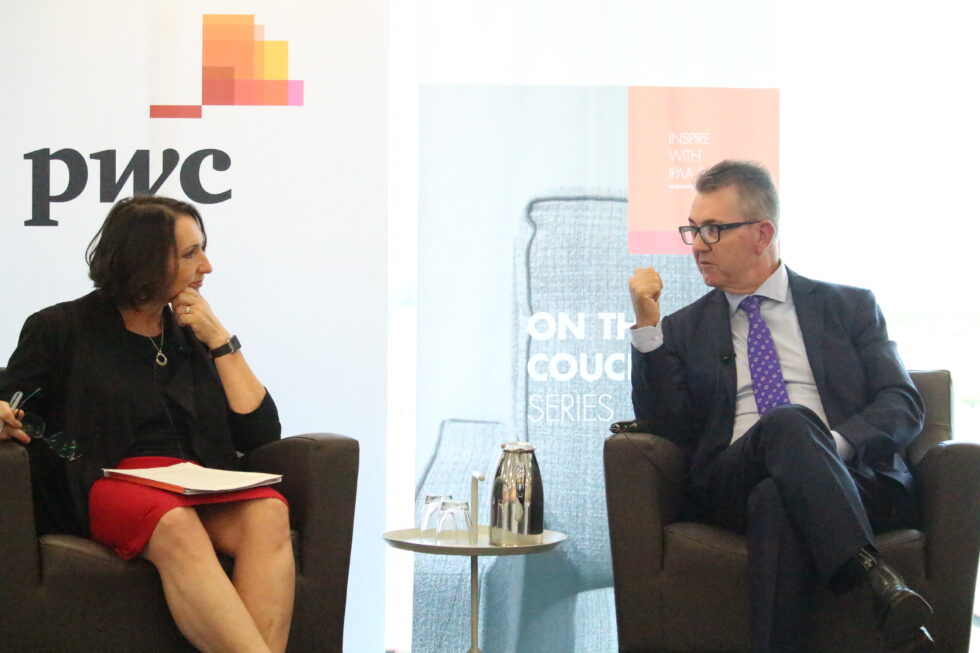
Find out more about the Skilled Service Hub and current job opportunities here.
Learn more
Our lives are becoming more entwined with, and dependent upon, digital technologies. These technologies are presenting exciting opportunities to improve our citizens’ quality of life, but there are also risks to individuals, society, trust in government and our democracy that need to be addressed.
To better understand how prepared the South Australian Public Sector is for these challenges, Flinders University is conducting a survey. The responses collected will be used to develop training to equip public servants with the knowledge, skills and mindsets needed to help South Australia thrive in the digital age. This is a vital piece of research that will help support our sector grow and develop, and with your input we can make a real difference in how we move forward into the future. Complete the survey here >
The survey takes about 10 minutes to complete and responses are confidential. It closes at midnight on 1 October 2021.
Once the survey is complete, you have the option to participate in a prize draw to win 1 of 3 Bunnings gift cards worth $40.
The survey is being undertaken by Flinders University and is part of a research project which investigates social cyber awareness in public sector leaders and if it improves through an education program. Full details of the research project (including confidentiality, privacy, use of the data and contact details for the research team) can be found here. The project has been approved by Flinders University’s Human Research Ethics Committee (Project Number: 4686).
If you have questions about the survey, please contact Tammy Joachin, Lead – Executive Education, Jeff Bleich Centre (Flinders University) on 0401002719 or tammy.joachin@flinders.edu.au






Flinder’s University Public Sector Readiness for the Digital Era Survey
Complete the SurveyThe Institute of Public Administration Australia is pleased to announce that funding has been awarded to three new public administration research projects.
The grants from the Public Administration Research Trust Fund — which IPAA manages in partnership with the University of Canberra’s Centre for Change Governance — will support research into the ethical application of artificial intelligence, the career pathways of Federal ministerial staff once they leave a minister’s office, and the capabilities associated with the implementation of social procurement.
Caroline Walsh, IPAA’s National Executive Director, said that the three research projects will deliver real-world insights for public servants and those involved in the wider public purpose sector.
“We are really pleased to be able to support these research projects into areas of public administration that are topical and important to the profession, not only now but into the future.”
Grants were awarded to:
Professor Darren Sinclair, Director of the Centre for Change Governance at the University, said that the partnership demonstrated the benefits of university collaboration with a member-based organisation like IPAA that promotes excellence and pride in public service across Australia.
“Public administration is undergoing a period of rapid transformation, with the advent of digitisation and big data, together with new and demanding challenges such as COVID-19, and the need to addresses integrity, diversity and inclusion.
It is more important than ever, therefore, for academics to provide research insights to practitioners — this can only happen with funding, which the IPAA has generously provided to three excellent projects”.
The research findings from these projects will be made available by IPAA and the University of Canberra in due course.
More information on the research fund is available from the Public Administration Research Trust Fund page on IPAA’s national website.
To see original article, visit the IPAA National website here.



Dr Alex Antic is a leader, consultant and advisor on analytics, data science and artificial intelligence, and will speak at the 2021 IPAA National Conference, Riding the Wave of Service Transformation, being held in Brisbane on 14–15 October 2021.
Alex has more then 18 years post-PhD experience and knowledge in areas that include advanced analytics, machine learning, artifical intelligence, mathematics, statistics and quantitative analysis, developed across multiple domains: Australian and State Government, Asset Management, Insurance, Academia, Banking (Investment and Retail) & Consulting.
In 2021 Alex was recognised as one of the Top 5 Analytics Leaders in Australian by the Institute of Analytics Professionals of Australia. He also holds several senior advisory roles across industry, government, start-ups and academia.
Alex has a PhD in Applied Mathematics, First Class Honours in Pure Mathematics, and a double-degree in Mathematics and Computer Science.
The 2021 IPAA National Conference will be delivered at Brisbane’s Hilton Hotel, with live stream tickets available for those unable to attend in person.
Early bird tickets are available until 31 August 2021. For tickets and more information, visit the 2021 IPAA National Conference website.
Original article from IPAA National Website.


